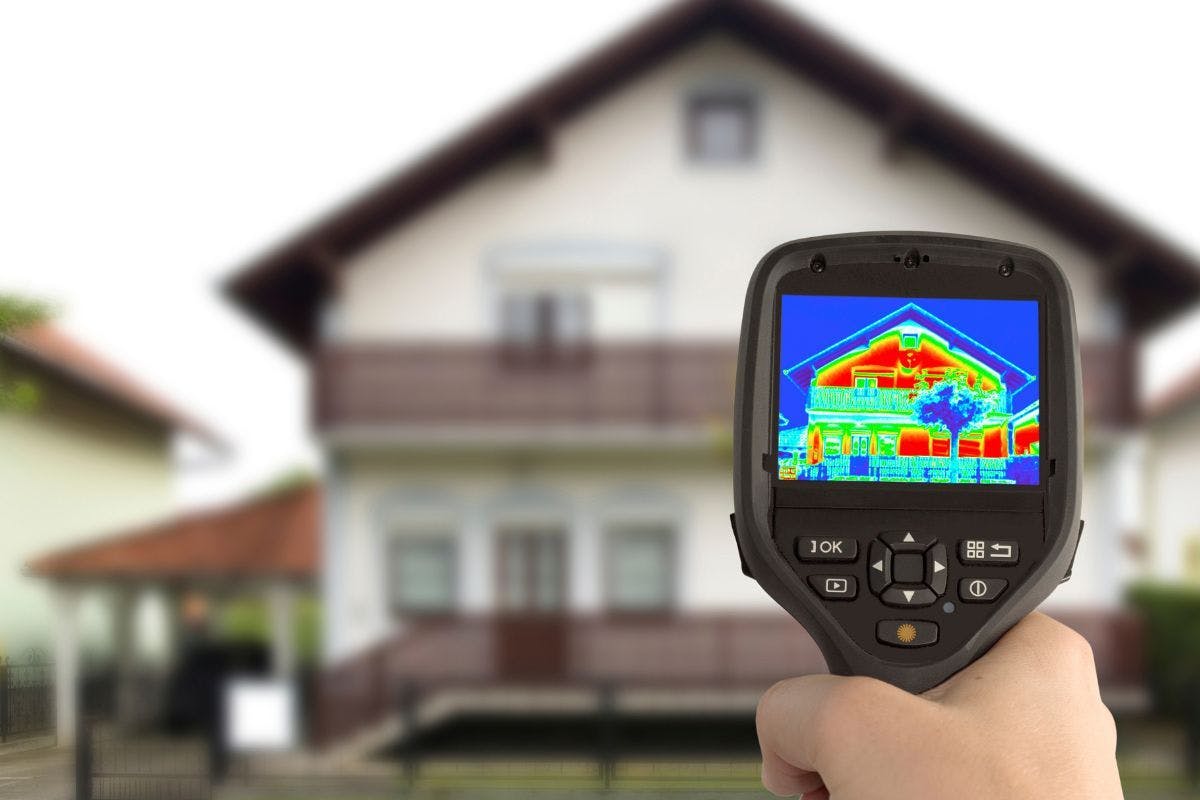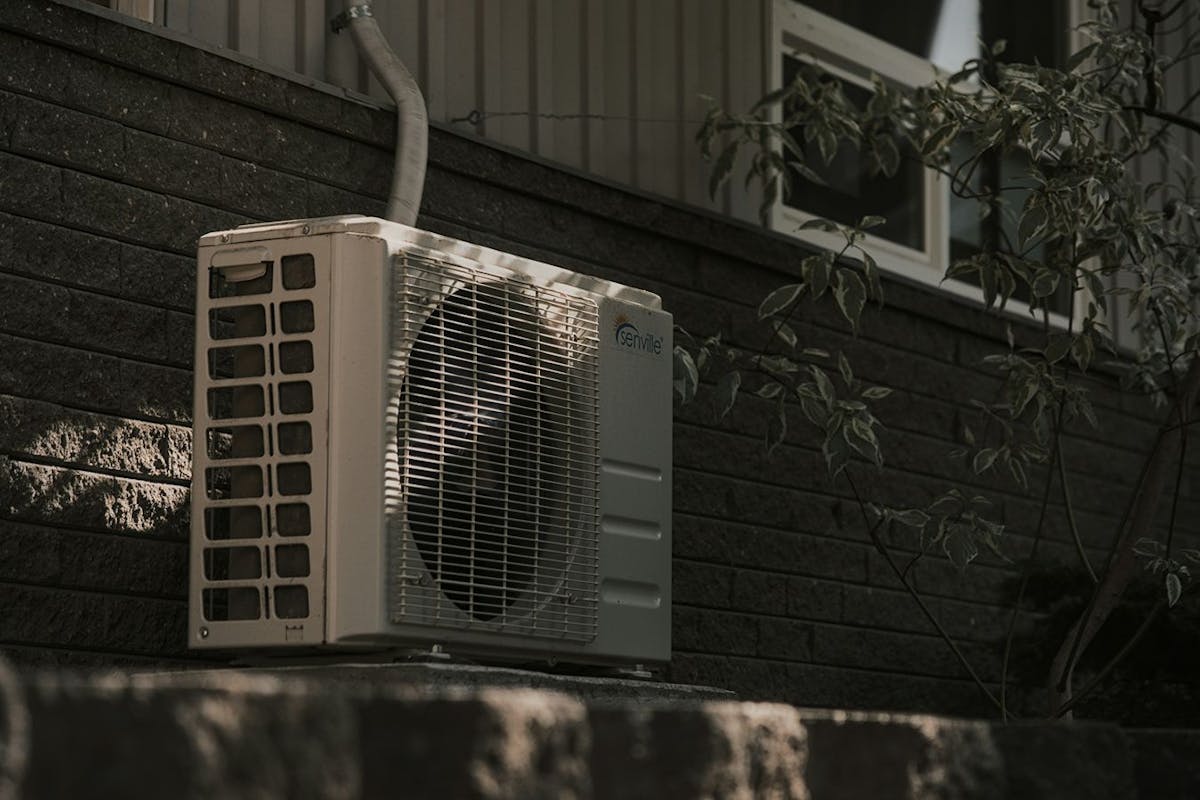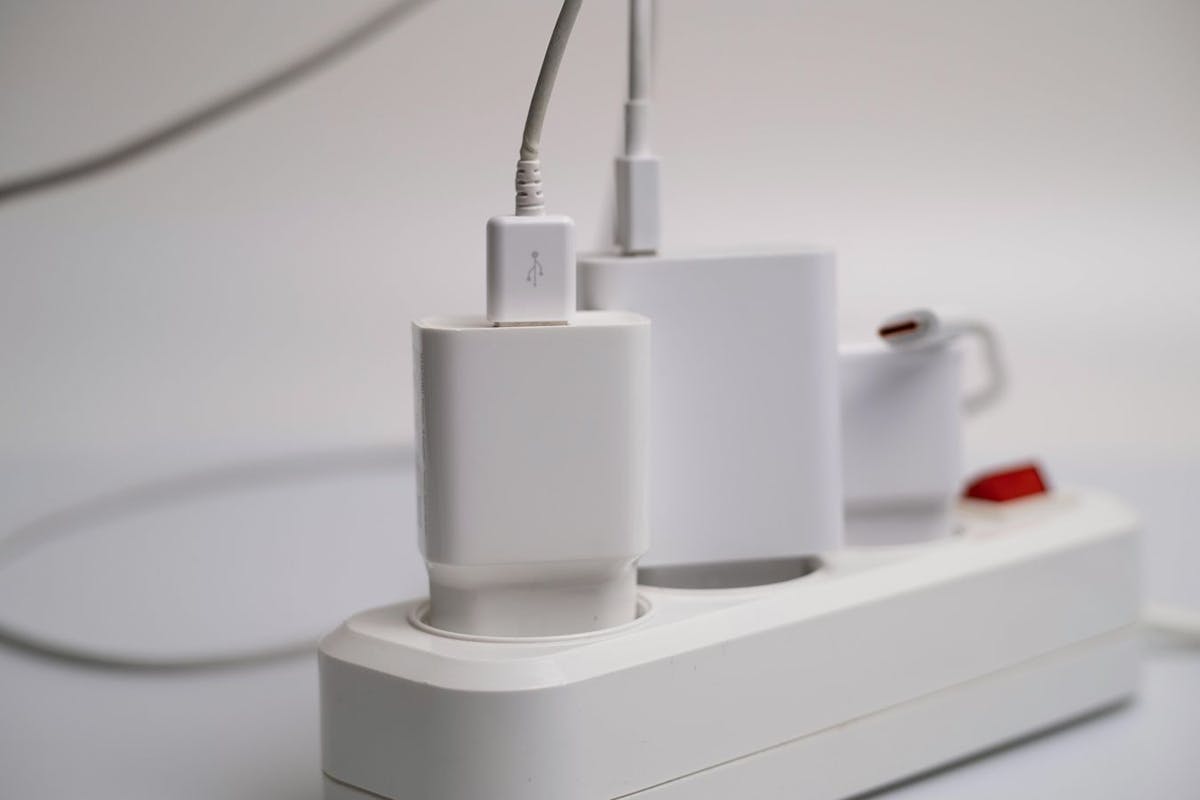How an Energy Audit Works to Cut Your Bills
Last edited

Author
Andrew Giermak
Solar and Electrification Writer and Editor

Editor
Andrew Blok
Electrification and Solar Writer and Editor

If you’re trying to save money on your monthly utility bills, but not making much progress, an energy audit may make a difference. A home energy audit, or home energy assessment, will give you professional recommendations for improving energy efficiency. A complete audit of how energy is used (and wasted!) in your home — including checks of your home’s insulation, ductwork, water heating, HVAC, electronics, appliances, and lighting — can give you the next steps for saving energy and saving money.
See how much you can save with home energy changes
What Is an Energy Audit?
An energy audit is an assessment of the energy efficiency of a building. These evaluations are available for residential homes and commercial buildings, with the goal of identifying where energy is wasted.
An estimated 52% of energy used in US homes is for heating and cooling, while the remaining amount is used for other appliances, electronics, lighting, and water heating. Energy auditors inspect your home's insulation, appliance efficiency, air leakage, and more.
The benefits are undeniable: Improving the efficiency of your home can reduce your utility costs and your home gets more comfortable and sustainable.
Why Are Energy Audits Important?
Regardless of the age of your home, there are likely inefficiencies that might not be obvious and even small energy leaks can add up to higher utility bills throughout the year. These areas of waste could be why your utility bills continue to creep higher.
Energy audits identify places your energy consumption can be reduced. For example, if you have old windows that leak air, it’s likely that your heat pump, air conditioner, or furnace is working harder than necessary to maintain a comfortable indoor temperature.
An energy audit identifies drafts and insulation gaps. Blocking them can increase your home comfort and reduce your electricity use (and carbon footprint) at the same time.
In addition to possible energy savings, these audits can also help with reducing the risk of more significant issues related to poor ventilation, like mold.
What Happens in an Energy Audit?
In a home energy assessment, the auditor will perform a series of inspections and tests to find the specific energy inefficiencies in your property. The specifics of each audit may vary depending on the auditor or service you choose.
Components of an energy audit
Several important components and tests are included in most energy audits.
- Insulation check: An auditor will examine the insulation levels in the walls, basements, and attics.
- Blower door test: This measures air leaks and drafts in the home and identifies areas that need to be sealed.
- Thermographic scanning: This scan effectively identifies whether heat is lost through the walls, doors, or windows.
- HVAC system: This involves inspecting the efficiency of the heating and cooling systems, including the ductwork and air delivery systems.
- Lighting evaluation: Checking light fixtures and the types of bulbs to ensure you are using the most energy-efficient solutions available.
- Appliances check: Ensuring your appliances are working correctly and everything meets energy efficiency standards.
- Utility bill review: An auditor can review your utility bills to identify patterns that indicate unusually high energy usage.
See how much you can save with home energy changes
Results of an energy audit
Once the energy audit is complete, you will receive personalized recommendations that will help improve the efficiency of your home.
- Air sealing and insulation: A few insulation upgrades can make a big difference in the building's overall efficiency. Additionally, sealing air gaps can help maximize your insulation’s effectiveness.
- Appliance upgrades: If your appliances are outdated, upgrading to energy-efficient models can save energy. Light bulbs and fixture replacements can also help reduce energy usage.
- Window and door replacement: Replacing the windows and doors on older homes can have an undeniable impact on energy efficiency, albeit at a relatively high cost.
- HVAC system: Maintenance can make your current HVAC system run more efficiently. Or, it might be recommended to replace the entire system if it’s too old.
- Energy saving habits: Certain behavioral adjustments throughout the day can add up to energy savings. For example, you might install a smart thermostat and adjust the settings to change the temperature when you are away at work during the day.
- Renewable energy: Consider installing solar panels to leverage renewable energy sources for your home.
You’ll receive a detailed report summarizing the audit findings. One benefit of working with an experienced energy auditor is you can discuss the cost-benefit analysis of implementing the recommended changes. You can use that information to decide how you want to move forward with your home upgrades.
How Much Does an Energy Audit Cost?
The typical price range for an energy audit is $100-$500, depending on the size of your home and the complexity of the testing. Talk to the auditor about the price difference between a basic or comprehensive audit and everything that is included in the services.
In some areas, your utility provider might offer free or discounted audits. But keep in mind these free services aren’t as comprehensive as the services offered by an energy auditor. Most utility audits only address surface-level issues, while a full-service energy audit is more detailed.
Are There Incentives for Energy Audits?
The Inflation Reduction Act put in place a tax credit for energy audits (among many other energy efficiency improvements). You can claim 30% of the audit’s cost as a tax credit, up to $150, as long as your chosen auditor meets certain criteria, like being certified by one of a few organizations. The credit is now set to expire at the end of 2025.
In some areas, state and local governments offer rebates or incentives for both the audits and energy-efficient upgrades recommended as a result of the audit.

Credit: Energy Star
DIY Energy Audits
While the most comprehensive solution to ensure a thorough audit is to hire an experienced energy auditor, there are a few things you can do for a DIY home inspection.
- Check for drafts around the doors and windows.
- Inspect insulation to look for gaps that need to be filled.
- Monitor energy usage using smart plugs or a home energy monitor.
- Use thermometers or thermal cameras to identify temperature imbalances in the home.
- Install weatherstripping and caulk cracks around the windows.
- Replace old light bulbs with LED bulbs.
Keep in mind that these DIY options can address basic problems, but they aren’t a replacement for the thoroughness of a professional audit. For more information, check out our guide to creating an energy efficient house, room by room.
Other Ways to Save on Energy
Your small daily habits can make a difference in energy usage.
- Thermostat settings: Adjust the thermostat and update the program each season. Programmable thermostats offer an automated way to optimize energy use.
- Laundry: Wash clothing in cold water, then hang everything to dry when possible. Or, consider a heat pump dryer.
- Ceiling fans: Run ceiling fans to reduce your heating and cooling needs. The fans will keep air circulation going to balance the room's temperature.
- Power strips: Install smart power strips that assess electricity usage and automatically disable things that you aren’t using at the moment. This helps to reduce vampire energy.
Are you ready to learn more about saving energy in your home? Start by exploring Palmetto’s Energy Advisor, which can help you find ways to make your home more energy efficient.
See what home electrification can do for you:
Energy Audit FAQs
Is a home energy audit worth the cost?
Yes, a home energy audit can be worth it, especially when it identifies cost effective ways to reduce your energy consumption and make your home more comfortable.
How do I prepare for a home energy audit?
When the energy auditor comes to your home, make sure they have access to the attic, basement, and crawl spaces. Additionally, have recent utility bills available for them to review.
Are energy audits expensive?
Energy audits are quite affordable, usually ranging between $100 and $500. If you pay federal income taxes, you could qualify for a 30% tax credit through 2025. If you don't want to pay at all, check with local utility providers to see if they offer basic audits for free or conduct one on your own.
Disclaimer: This content is for educational purposes only. Palmetto does not provide tax, legal, or accounting advice. Please consult your own tax, legal, and accounting advisors.


